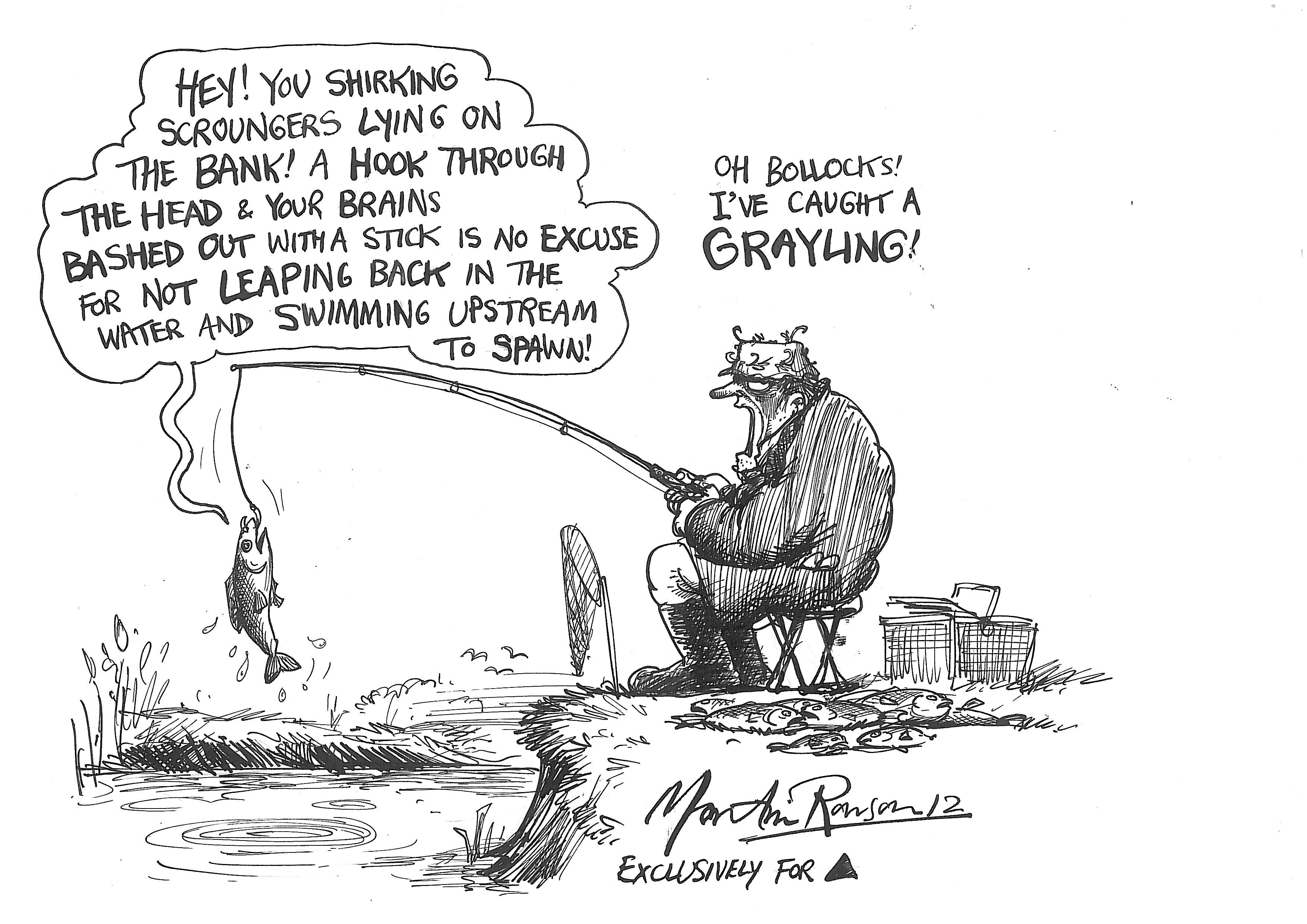Black Triangle comment courtesy of the fantastic Mr. Martin Rowson exclusively for Black Triangle and our sister organisation Disabled People Against Cuts (DPAC) :

________________________________________________________________________________
The Paralympics should inspire politicians to continue the fight for a fairer benefits system

Richard Whitehead at the Paralympic Games, which have been an inspiration to many Photo: AP
9:00PM BST 01 Sep 2012
 72 Comments (feel free to give them a piece of your mind! ~ Black Triangle Campaign)
72 Comments (feel free to give them a piece of your mind! ~ Black Triangle Campaign)
If the London 2012 Olympics challenged us to redefine and celebrate our national identity, the Paralympics are spurring us better to understand humanity itself. Already, in the Stadium, Aquatics Centre, Velodrome and elsewhere, we have witnessed feats of skill, endurance and competitive zeal that encapsulate international sport at its most ferociously brilliant.
As the conference season draws closer, the political class watches this phenomenal pageant – the third act in an extraordinary summer drama that has already embraced the Diamond Jubilee and the Olympics – and wonders what to make of it all. These Games are not a festival of condescension, still less an exercise in po-faced political correctness. The self-confidence on display is elemental and infectious. Paralympians such as cycling gold medallist Sarah Storey, “Hurricane” Hannah Cockcroft, the new T34 100m champion, and the bronze-winning judoka, Ben Quilter, do not see their achievements as a feel-good sideshow to the main event: a bolt-on extra to Bolt, so to speak. As Boris Johnson observed last week, wheelchair basketball is “far more violent, far more exuberant, far more enjoyable to watch” than the able-bodied version. There are no wimps or victims in these fierce gladiatorial contests. In this sense, London 2012 has the potential to be remembered as a transformative moment in our collective perception of the disabled.
Note the word “potential”: against the celebratory mood of the Games must be weighed the disturbingly high level of “hate crime” against the disabled reported last year, double what it was in 2008, and the hard core of bigotry and bullying consistently revealed in surveys. Yet the sale of 2.4 million tickets for these Games marks a step-change in attendance at Paralympic events, accompanied by serious and comprehensive coverage on Channel 4.
Yes, poisonous attitudes towards the disabled persist – but they now seem absurdly dated as well as vile. When George Galloway used the term “window-licker” (an especially offensive term for a disabled person) on Twitter last week, he looked pitifully disconnected from and lost in the contemporary landscape. As David Cameron has rightly pointed out, much of what is lazily dismissed as “political correctness” is no more than politeness.
Perhaps inevitably, these Games have rekindled the impassioned controversy over the new Work Capability Assessment (WCA), which tests eligibility for the Employment and Support Allowance (ESA). There is deep irritation at the very apex of Government that Atos, the company that conducts the tests, is a principal sponsor of the Paralympics – a financial relationship which, in the eyes of some campaign groups, has fatally contaminated the whole event.
The alleged villain of this pantomime is Chris Grayling, Minister of State at the Department for Work and Pensions – which was invaded by protesters in wheelchairs on Friday after an initial demonstration outside the headquarters of Atos. There is no doubt that Grayling is a robust man of the Right – one rightly tipped for promotion in the forthcoming reshuffle. But, in motivation and method, he is very far from the heartless axe-wielder of the campaigners’ caricature.
In discussions behind the scenes, Grayling has warned consistently of the difficulty intrinsic to shifting from one benefit culture to another and the natural anxieties that such reform provokes in claimants – anxieties that can be overcome, but only with guidance and sensitivity. To take a simple example: Grayling inherited a system from Labour where those claimants were summoned to assessment by a computer-generated DWP letter; now, they are telephoned.
Mistakes have certainly been made. The Government’s initial case for reform depended excessively upon anecdotal evidence of abuse and “benefit scroungers.” In the months to come, the argument for change will be made afresh, this time in constructive fashion, with evidence of success: claimants being declared fit for work, finding a job and escaping the isolation of dependency. There will be further improvements to the system, based on independent advice already delivered by the occupational health specialist, Professor Malcolm Harrington.
As ever, the Coalition needs to be absolutely clear about its motives. It is certainly true that some cuts to the welfare system have been driven by the deficit reduction programme. How could it be otherwise? The new Personal Independence Payment, which replaces the old Disability Living Allowance from next April, is partly intended to save money. But the ESA is emphatically not subject to Treasury targets: Grayling’s objective has been to make sure that, where possible, those able to work are encouraged and enabled to do so, and not locked in welfare dependency. About half of 1.4 million claimants have been assessed so far; the process should be complete by March 2014. It is hard pounding – not least for those who must make the often frightening journey across the border from Benefit Land into the employment market. But it is worth it.
As the Conservative conference approaches, Cameron and co are under pressure from the Tory Right – or Tory “Mainstream” as it now likes to be known – to do more, to cut faster and deeper, to reduce more taxes, to produce a persuasive “growth strategy” (but also, of course, to reduce immigration, cut nothing that affects the middle class, and avoid any transport projects in their constituencies). The PM is asked by Tim Yeo whether he is “man or mouse”. It is the season of angry policy shopping lists and butch goading of senior ministers.
If only more of Grayling’s comrades on the Right had his grasp of the sheer complexity of government: the difficulty of taking one system that affects millions of people and replacing it with another. Every such process – and the Coalition is embarked upon scores of them – is subtle, demanding and agonisingly slow.
This is the political parable of the Paralympics. For a fortnight, we shall behold the grafting of the Darwinian ethos at the heart of all sport on to the civilised belief in the equality of human worth. The Games shatter the sinister, cod-Freudian notion that biology is destiny: a human being is no worse, or better, because he lacks a limb, or is blind, or has cerebral palsy. He may have what it takes to be a gold medallist. But he may also need material assistance from the state.
It is absolutely right to ask, in each case, whether that assistance is always needed: self-reliance promotes human dignity. But there will always be hundreds of thousands of people who do need help, and are no less entitled to our respect. The Paralympics incarnate the pluralism at the heart of modern society: the sheer range of human endeavour, the many ways of winning – and the sheer range of needs. I suggest that all these nuances are perfectly clear, under the rubric of “decency”, to the millions of people visiting the Olympic Park and watching the events on television.
We live in an age in which the state is living well beyond its means, an age in which the only question is where cuts should fall and on what basis. Our public services require radical reform; so too does our welfare system. But change of this sort – often involving the most vulnerable – is inherently complicated and emotive. In the face of this reality, the stamping of ideological feet achieves nothing. But it does show that the real choice for a governing party is not between mice and men. It is between adolescents and grown-ups



8 Responses
I have felt free to comment under the Torygraph article.
Describing Grayling as decent is surely the most despicable thing ever.
I have never read so much shit in my whole life.
shit i would no say that at least shit is useful this ass hole it a git and a plonker .. jeff ..
Oh my god! what a load of arse licking drivel! they actually pay people to write this shite? what a syncophantic twat!
I love Chris Grayling – what a nice man, such a nice man for a fascist pig!
It would be to this government’s and the Labour party’s UNIVERSAL CREDIT if they all died NOW
the Torygraph is a shit paper anyway only good enough too wipe your arse on
comment comment comment on the torygraph site